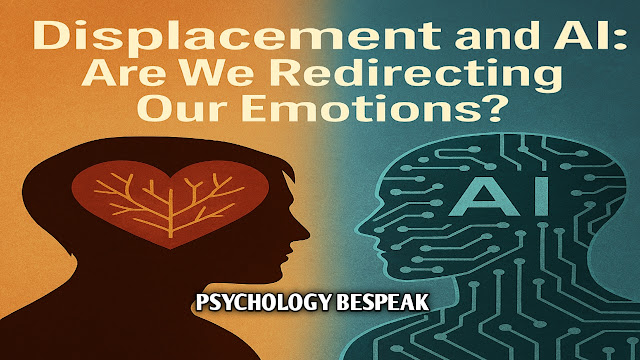Ahoi Ashtami: Threads of Love and Quiet Watching
Ahoi Ashtami: Threads of Love and Quiet Watching
Under
the soft night sky, a mother ties a red thread around a tree. Her child watches
quietly, a water pot nearby. The thread glows faintly in the moonlight. Stars
blink above, and the child smiles.
Ahoi
Ashtami is not loud. It doesn’t ask for applause. It’s a festival of watching,
waiting, and quiet devotion—where mothers fast for their children’s well-being,
and rituals unfold in stillness. The red thread, tied around a tree, becomes a
symbol of protection, memory, and care.
🧠 Psychological Insight: The Power of Ritual and Silent Attachment
From
a psychological lens, Ahoi Ashtami offers a rich example of non-verbal
caregiving. The mother’s fast, the thread, the water—all become symbols of secure
attachment, where love is expressed through presence rather than speech.
Children
observing these rituals internalize a sense of emotional safety. The
quiet watching becomes a form of attunement, where the child learns that
care can be steady, unspoken, and deeply felt.
This
kind of ritualized caregiving fosters:
- Predictability: The same gestures each year build emotional memory.
- Symbolic meaning: The thread becomes a metaphor for connection.
- Intergenerational empathy: Children witness devotion and learn to mirror it.
 |
| Night sky with soft stars twinkling |
🪔 Ritual as Emotional Architecture
The
act of preparing the thali—with diya, karwa, and Ahoi Mata’s image—is more than
tradition. It’s a way to organize anxiety into action. The flame becomes a
focal point, the kalash a container of hope. In psychological terms, this is ritualized
regulation: transforming diffuse worry into structured care.
 |
Preparing the thali with love and
prayer. |
👩👧 Storytelling as Intergenerational Holding
When
a mother tells the tale of Ahoi Mata to her child, she’s not just passing on
myth—she’s offering emotional scaffolding. The story becomes a loop of
reassurance, a way to soothe and anchor. It’s a form of narrative
co-regulation, where identity and safety are woven together.
 |
The tale of Ahoi Mata… passed from
heart to heart. |
🌠 Stars as Cognitive Anchors
The
fast ends only when the stars appear. This waiting isn’t arbitrary—it mirrors
psychological pacing. The stars become visual affirmations, markers of
time, hope, and completion. Seven stars, seven blessings: a symbolic structure
that holds maternal intention.
 |
| Seven stars, seven blessings |
🪷 Devotion as Shared Holding
The
final gesture—lighting the diya before Ahoi Mata—isn’t solitary. It’s
witnessed, echoed, and held by community. In psychological terms, this is relational
mirroring: the mother’s devotion is seen, affirmed, and gently amplified by
others.
 |
These scenes carry the emotional rhythm of the festival—gentle, protective, and full of quiet love.
🪢 Cultural Resonance
On
Ahoi Ashtami, mothers rise before sunrise and begin a day-long fast. In the
evening, they tie a red thread around a tree—often a banyan or peepal—and pour
water at its base. The act is quiet, deliberate, and filled with intention.
It’s a ritual of relational projection—where the mother’s hope and care are symbolically transferred to the child’s future.
🧠 Psychology Bespeak: Why It Matters
In
a world of fragmented attention and invisible labor, Ahoi Ashtami offers a
quiet counterpoint. It’s not just about fasting—it’s about maternal agency,
emotional pacing, and symbolic care. Ritual becomes language.
Story becomes regulation. Stars become anchors.
This slideshow is not just visual—it’s emotional architecture. Ahoi Ashtami, seen through the lens of psychology, becomes a shimmered map of devotion.
🪔 Closing Reflection
In the hush of Ahoi Ashtami, the thread glows—not just around the tree, but around the heart. It’s a shimmer of care, passed silently from one generation to the next.
Ahoi Ashtami… a mother’s devotion under the stars This vertical reel is a quiet offering—woven from memory, ritual, and emotional resonance. It honors the maternal rhythm of Ahoi Ashtami, where devotion is passed from heart to heart, lit by seven stars and a single diya. No voiceover, no spectacle—just shimmer, gesture, and presence. May it remind us that storytelling is a form of care, and ritual a way of remembering.
Watch below, and let the blessings unfold.
If
you're exploring tools
👉DivaFramesAhoi Ashtami Photo Frame 6x8 Inch
👉Karwa Chauth Ahoi Ashtami Vrat Katha Book
(Affiliate link—shared with intention)
Thank
you everyone for viewing this blog, liking it, sharing
it, sending your comments and subscribing to the blog and letting it fulfill
the purpose for which it was made i.e. to make more peaceful and healthy
persons.
For more articles:
Ø Sharad
Purnima and the Psychology of Moonlit Presence https://psychologybespeak.blogspot.com/2025/10/sharad-purnima-and-psychology.html
Ø Devotion
Beyond Applause Forty Years of Silence and the Nobel Prize https://psychologybespeak.blogspot.com/2025/10/devotion-beyond-applause-nobel-prize.html





Comments
Post a Comment